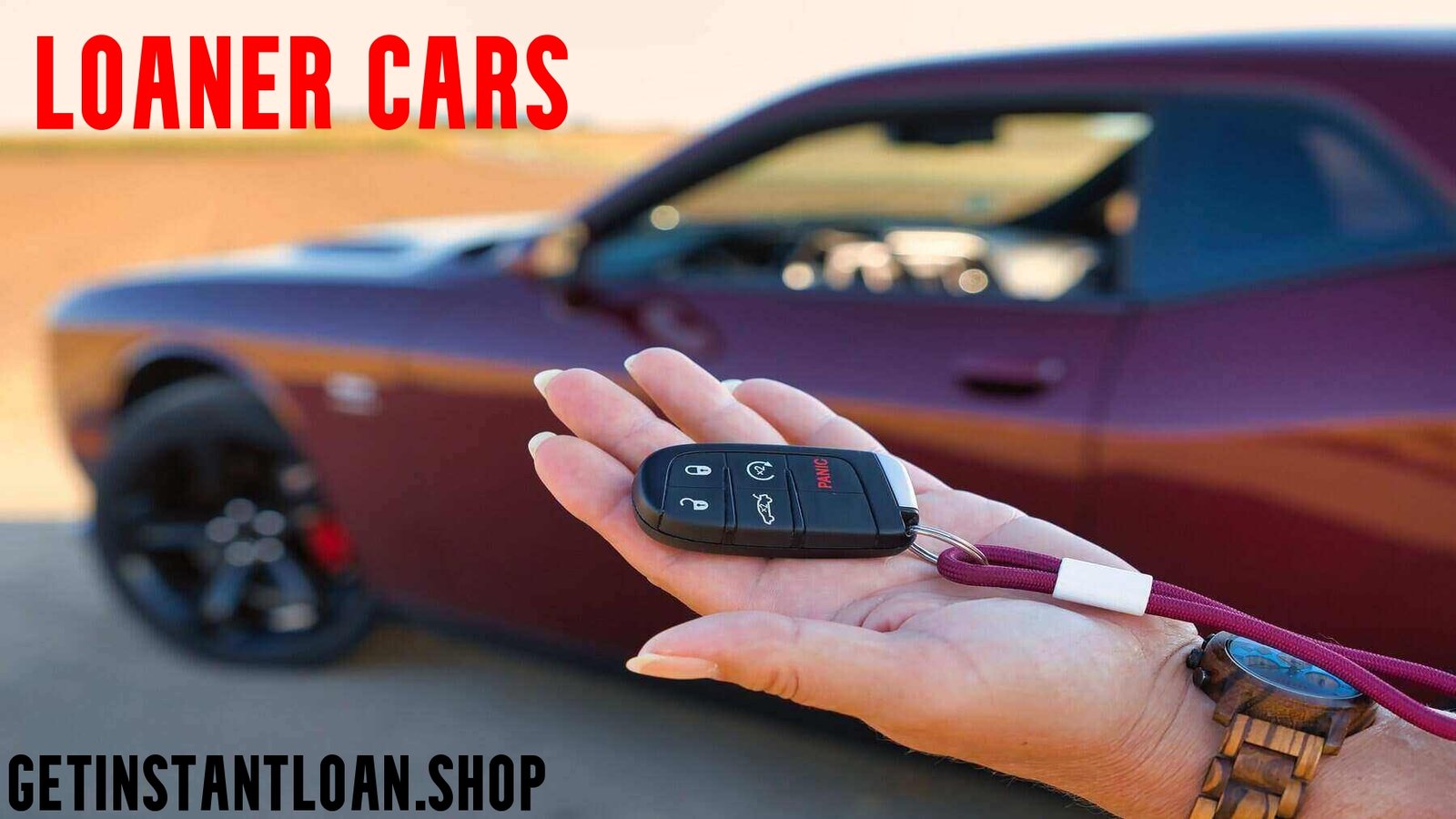When your car needs repairs or maintenance, a loaner car can be a big help. A loaner car, or courtesy car, is given by dealerships or rental companies. It lets you keep moving while your car is being fixed. This article will cover what loaner cars are, their benefits, and how to use them well.
Key Takeaways
- A loaner car is a temporary vehicle provided by a dealership or rental company while your personal car is in the shop for repairs or maintenance.
- Loaner cars offer the convenience of continued mobility and the ability to maintain your regular routine during the repair process.
- Dealerships and rental car companies have different policies and procedures for accessing and using loaner cars, which are important to understand.
- Proper preparation and proactive communication with the service department can help ensure a smooth loaner car experience.
- Treating the loaner car with care and responsibility is important to avoid any additional costs or fees.
What is a Loaner Car?
A loaner car is a vehicle given by a dealership or rental company to customers while their car is being fixed or repaired. It’s a way to keep people moving without stopping their daily life. This service helps you keep up with your daily tasks and get around without trouble.
Understanding the Concept
Getting a loaner car is easy: when your car is in the shop, you get a new one from the dealership or rental company. This lets you keep going to work, do errands, or take care of other things without a hitch.
Benefits of Loaner Cars
- Convenience: A loaner car makes sure you can keep doing what you need to do every day without a break.
- Mobility: It lets you stay mobile and independent while your car is being fixed.
- Reduced Inconvenience: You don’t have to worry about finding another way to get around, like public transport or ride-sharing.
- Peace of Mind: Having a reliable car to use while yours is in the shop can make you feel less stressed and unsure.
Knowing about loaner cars and their perks can help you plan for times when your car is out of commission.
When Do You Need a Loaner Car?
A loaner car, also known as a temporary transportation, substitute automobile, courtesy car, or replacement car, can be a big help in many situations. Car dealerships, repair shops, or rental companies offer these vehicles to customers whose cars are being fixed or serviced.
One common reason for needing a loaner car is when your vehicle is in the shop for maintenance or repairs. This could be for a simple oil change or a complex fix like a transmission overhaul. Having a loaner car ensures you can get around while your car is being worked on.
- Your car is in the shop for scheduled maintenance or routine service
- Your vehicle requires unexpected repairs, such as a mechanical issue or collision damage
- You need a temporary replacement while your car is being serviced or repaired
- Your vehicle is unavailable for an extended period due to a major repair or overhaul
Having a loaner car means you can keep up with your daily life without a hitch. It lets you stay independent and productive while your car is being fixed.
| Scenario | Benefit of a Loaner Car |
|---|---|
| Scheduled Maintenance | Ensures you have a reliable way to get around while your car is in the shop |
| Unexpected Repairs | Provides a substitute automobile to use during the repair process |
| Accident-related Damage | Offers a courtesy car to use while your vehicle is being restored |
| Major Overhaul | Gives you a replacement car for an extended period of time |
In summary, a loaner car is a great option when your main car is out of commission for service, maintenance, or repairs. It ensures you have the temporary transportation you need to keep up with your daily life and stay independent.
Dealership Loaner Cars
When your car needs repairs or maintenance, many dealerships offer loaner cars. These cars let you stay mobile while your car is fixed. They are a temporary solution.
Policies and Procedures
Dealerships have rules for their loaner car programs. You might need a valid driver’s license, proof of insurance, and a deposit or credit card hold. Knowing and following these rules makes the experience smoother.
Advantages of Dealership Loaner Cars
- Convenience: Loaner cars are easy to get and are at the service center. This makes picking up and dropping off simple.
- Familiarity: Driving a car from the same dealership is familiar and comfortable. The cars are often similar to yours.
- Quality Assurance: Dealerships keep their loaner cars in top shape, just like the cars they sell. This means you get a reliable car for the time you need it.
- Seamless Integration: Getting a loaner car from the dealership helps with the repair process. The staff knows your situation and can manage things better.
Using a loaner car from a dealership is a great option when your car needs work. By knowing the policies and procedures, you can enjoy the advantages of courtesy cars. This makes the experience smoother and less stressful while your car is being fixed.
Rental Car Companies and Loaner Cars
When your car is in the shop for repairs, you have two main options for getting around: renting a car or getting a loaner from the dealership. Both can give you a car to use while yours is fixed, but they are different.
Comparing Rental and Loaner Options
The main difference is why and how you can get these cars. Rental cars are for anyone who needs a car temporarily. Loaner cars are for customers whose cars are being fixed at that dealership.
Getting a loaner car is often quicker because the dealership knows your car and the repair process. They might give you a loaner car right away. Also, loaner cars are part of the dealership’s service, which could save you money on a rental vehicle.
But, loaner cars might not be as many as what rental companies offer. Rental companies have lots of cars, from cheap to luxury, for different budgets and tastes.
Choosing between a loaner car and a rental vehicle depends on what you need, what’s available, and what you like. Knowing the differences helps you pick the best option for a smooth experience while your car is being fixed.
Insurance and Loaner Cars
Using a loaner car means you need to know about insurance and coverage. Insurance policies can be complex, but it’s key to be protected while driving a temporary car.
The dealership or rental company usually covers the loaner car’s insurance. If you have an accident, their insurance will pay for damages. But, you might still have to pay deductibles or other costs, based on the policy.
| Insurance Coverage | Dealership Loaner Car | Rental Car |
|---|---|---|
| Liability Coverage | Provided by the dealership | Provided by the rental company |
| Collision and Comprehensive Coverage | Provided by the dealership | Provided by the rental company |
| Deductibles and Out-of-Pocket Expenses | May be required to pay | May be required to pay |
Always review the insurance details with the dealership or rental company before taking a loaner car. This way, you’ll know what you’re responsible for and any costs you might face if there’s an accident.
Your personal auto insurance might also cover a loaner car, but how much can vary. Always talk to your insurance company to see how your policy applies to a loaner car.
“Knowing the insurance implications of using a loaner car can help you make informed decisions and ensure you’re financially protected.”
Understanding the insurance and costs of a loaner car helps you make smart choices. This way, you’re protected while driving a temporary vehicle.
Loaner Car: Your Temporary Ride Solution
When your car is in the shop for repairs or maintenance, a loaner car can be a lifesaver. This car, also known as a courtesy car or replacement car, lets you keep up with your daily life without a hitch.
Whether you’re waiting for your car to get fixed at a dealership or it breaks down unexpectedly, a loaner car is there for you. It’s a dependable way to get around while your car is out of commission. Knowing about these substitute automobiles helps you plan for when you can’t use your own car.
- Maintaining your mobility and independence during vehicle repairs or servicing
- Ensuring you can still commute to work, run errands, and attend to your daily activities
- Providing a stress-free experience when your primary mode of transportation is unavailable
- Allowing you to continue your life without significant disruptions
Using a loaner car means you won’t miss a beat in your life. It’s a convenient way to keep moving until your car is ready for you again. This temporary ride is a big help, keeping you on track and productive when your car is not available.
Tips for Getting a Loaner Car
Getting a loaner car can be easy if you’re ready. Here are some key tips for a smooth experience.
Prepare Your Documentation
Make sure you have all your documentation ready before you go. This includes your driver’s license, insurance details, and any other important papers. Having these documents ready will help speed up the process and avoid delays.
Be Proactive
Being ahead of the game is crucial with loaner cars. Don’t wait until it’s too late to ask for one. Contact the dealership or rental company early when you know your car will be in the shop. This way, you’re more likely to get a loaner car that fits your needs and schedule.
- Talk to the service department or rental company about your timeline and what you need.
- Find out about any rules or requirements for getting a loaner car.
- Check if loaner cars are available and book one quickly.
Being proactive and having your documentation ready makes getting a loaner car easier. This ensures a smooth transition to your temporary ride.
Maintaining Your Loaner Car
When you get a loaner car, treat it like it’s your own. This means giving it the same care and attention. Doing so ensures a smooth experience while you’re using it.
Treating it Like Your Own
Looking after a loaner car is a team effort between you and the dealership or rental company. Here are some tips to keep your loaner car in great shape:
- Refuel Responsibly: Always fill the tank before returning the car, just like you do with your own.
- Clean and Tidy: Keep the inside and outside of the car clean. Don’t leave personal items or trash behind.
- Careful Driving: Drive the car with the same care you would your own. Avoid risky driving, sudden stops, or actions that could harm the car.
- Timely Maintenance: If the car needs regular maintenance, like oil changes or tire rotations, get it done quickly. Follow the manufacturer’s advice.
Following these tips helps you return the loaner car in the same condition as when you got it. This shows you’re responsible and respectful of the arrangement.
“Treating a loaner car with the same level of care as your own vehicle is a simple yet effective way to maintain a positive relationship with the dealership or rental company.”
Returning Your Loaner Car
Returning your loaner car is easy but important to do right. It ensures you switch back to your car smoothly. Whether it’s from a dealership or a rental company, the steps are similar.
Before you return the loaner car, check it for damage or issues. This prevents disputes or extra fees. Tell the staff about any problems you found when you bring it back.
Here are the steps to return the loaner car:
- Contact the dealership or rental company to schedule a convenient time to return the vehicle.
- Ensure that the loaner car is clean and free of any personal items.
- Refuel the vehicle to the level it was provided to you, or as specified by the company’s return procedure.
- Return the loaner car to the designated location and follow any additional instructions provided by the staff.
- Obtain a receipt or confirmation of the return to ensure there are no outstanding issues or charges.
The return procedure might change slightly by loaner car provider. So, check the specific rules before you return. Following these steps makes returning your loaner car easy and stress-free.
Returning your loaner car wraps up the process. It’s key to do it right to avoid problems or extra fees. This way, you can easily switch back to your own car.
Alternatives to Loaner Cars
When a loaner car isn’t available or fits your needs, there are other ways to get around. You can look into renting cars, using public transit, or ride-sharing services. These options offer flexibility and convenience to keep you on the move.
Rental Cars: A Flexible Choice
Rental car companies have many vehicles to choose from, like compact cars or SUVs. They let you pick the right car for your trip. Renting a car gives you the flexibility to use it for as long or as short a time as you need.
Public Transportation: Eco-Friendly and Affordable
If you live in a city, public transportation like buses, trains, or subways is a good choice. It’s cheaper and better for the environment than a loaner car. Many cities have great public transit systems that can take you where you need to go.
Ride-Sharing Services: Convenient On-Demand Options
Ride-sharing apps like Uber and Lyft let you get a ride with just a tap on your phone. They’re a handy option when you don’t have a loaner car. They offer a way to travel without the hassle of renting or owning a car.
| Transportation Option | Pros | Cons |
|---|---|---|
| Rental Cars |
|
|
| Public Transportation |
|
|
| Ride-Sharing Services |
|
|
When a loaner car isn’t an option, trying out these alternatives and transportation options can help you stay mobile. They keep your life moving forward.
Conclusion
Throughout this article, we’ve seen how loaner cars are a great way to get around when your car is not available. Whether it’s for car service, an accident, or any other reason, a loaner car can be a smooth and easy choice.
Dealerships and rental car companies offer loaner cars that let you keep up with your daily life without the stress of finding another way to get around. Knowing about the rules, steps, and perks of these cars helps you make a smart choice and have a good experience.
A loaner car is a big help in keeping you mobile and productive when your main car is down. Using this handy option lets you handle unexpected problems with ease and keeps your daily life running smoothly. With what we’ve covered, you’re ready to see how loaner cars can be a solid choice for temporary transport.
FAQ
What is a loaner car?
A loaner car is a temporary vehicle given by a dealership or rental company. It’s for when your car is being fixed or serviced. This way, you can still get around while your car is in the shop.
When do you need a loaner car?
You might need a loaner car if your car is being repaired or maintained. Loaner cars make sure you have a way to get around while your car is being worked on.
What are the advantages of a dealership loaner car?
Dealership loaner cars have their perks. They offer a smooth experience, take good care of your vehicle, and might even have insurance coverage.
How do rental car companies provide loaner cars?
Rental car companies can also offer loaner cars. They might be more flexible and convenient than dealership loaners, especially if your dealership doesn’t have them.
What about insurance coverage for loaner cars?
Insurance for loaner cars can be different. Make sure you know the rules of the dealership or rental company and your own insurance. This way, you’ll be covered.
How can you prepare for getting a loaner car?
Get your documents ready like your driver’s license and insurance. Talking to the dealership or rental company early can also make getting a loaner car easier.
How should you maintain a loaner car?
Treat the loaner car like it’s yours. Follow the maintenance tips, drive safely, and keep it clean. This helps avoid problems and extra fees when you return it.
What is the process for returning a loaner car?
Returning a loaner car usually means working with the dealership or rental company to make the switch back to your car easy. Know their specific steps or requirements.
What are some alternatives to using a loaner car?
If you can’t get a loaner car, there are other ways to get around. You could rent a car, use public transport, or try ride-sharing services.



